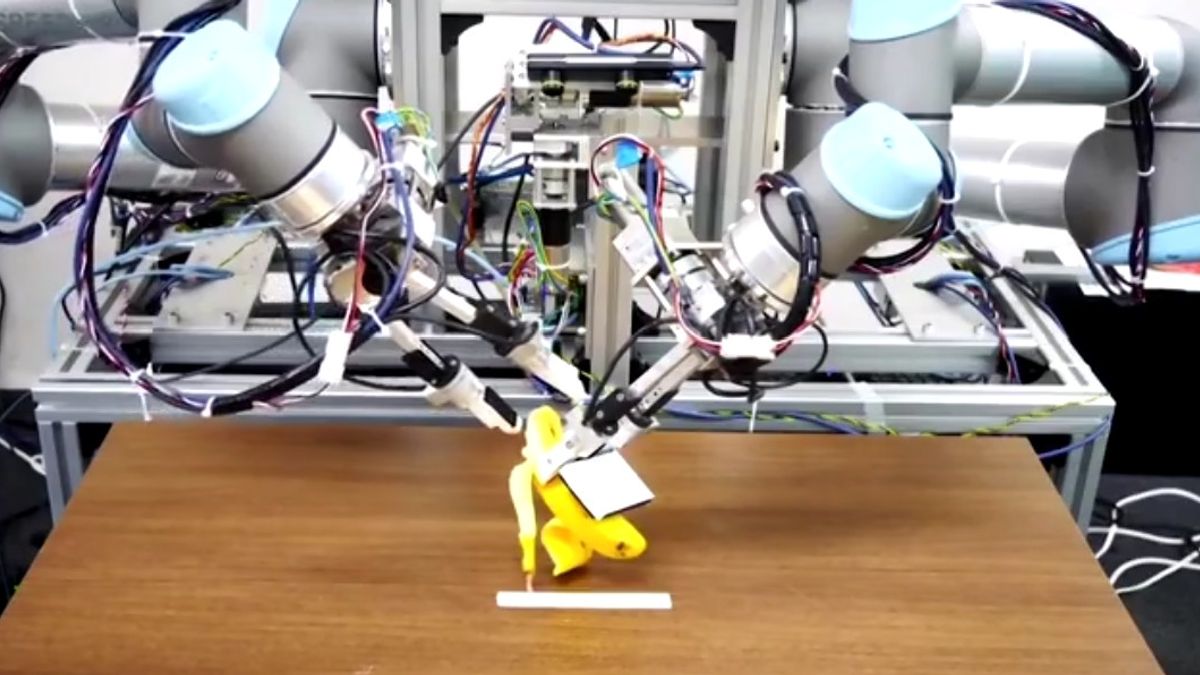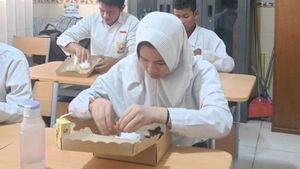JAKARTA - Researchers in Japan have succeeded in creating robots that can perform complex tasks. One of them is like peeling a banana without leaving a single skin.
A recent video from researchers at the Intelligent Systems and Informatics Laboratory at the University of Tokyo shows a robot with two large arms filled with wire, trying to peel a medium-sized banana, which only takes about three minutes.
While this skill may be easy for humans, peeling bananas is a surgical process with several steps for robots.
Most robots are not really equipped to handle this complex task, and in general, robots are much better at assisting large-scale tasks that involve only one step and are repetitive.
This is why the new Japanese robot is the pioneer of advanced AI technology. Researchers Heecheol Kim, Yoshiyuki Ohmura, and Yasuo Kuniyoshi trained the robot using a deep imitation learning process in which they demonstrated the act of peeling a banana hundreds of times to generate enough data for the robot to learn the action and imitate it.
AI can learn to model real human behavior simply by observing humans in real life. In this case, the robot was able to peel a banana after more than 13 hours of training with a 57 percent success rate.
While still undergoing more testing, Kuniyoshi believes his robot training method can teach robots to perform a variety of simple human tasks.
He hopes that better-trained robots can overcome the problem of labor shortages in Japan in the future, for example in food processing plants that rely heavily on human labor.
The English, Chinese, Japanese, Arabic, and French versions are automatically generated by the AI. So there may still be inaccuracies in translating, please always see Indonesian as our main language. (system supported by DigitalSiber.id)









